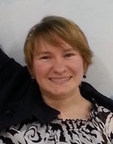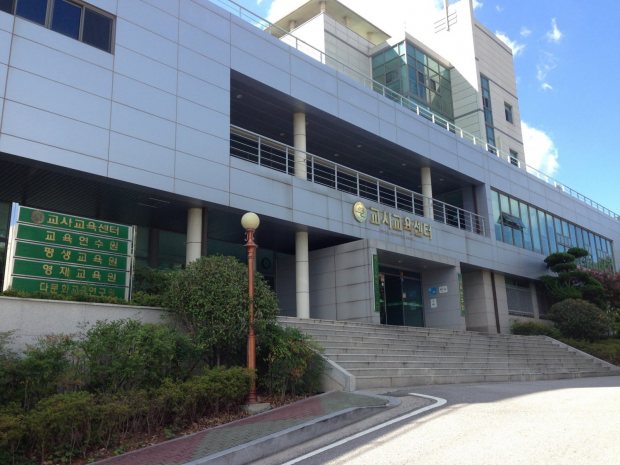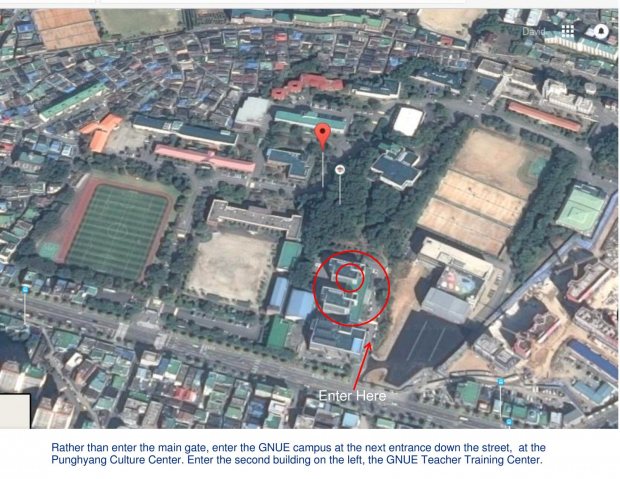
Gwangju-Jeonnam Chapter April Meeting
.
----- Morning Reflective Practice Session -----
Topic: How Ecological Is Your Classroom?
Session Facilitator: Jocelyn Wright
Time: 11:00 am - 12:30 pm (Sat., April. 9)
NEW Location: Aldersgate (올더스게이트), cozy cafe near GNUE. Ground floor of 광주우리교회 Building.
----- Main Meeting Schedule -----
Time: Saturday, April 9, 2016, 1:45 - 5:00 pm
NEW Location: Gwangju National University of Education (GNUE), Teacher Training Center (교사교육센터) 1st Floor; Room 811. Detailed directions HERE.
1:45 pm: Sign-in and Meet-and-Greet (Admission is free. Future membership is welcomed.)
2:00 - 2:50 pm: Presentation 1
![]() Hand Messages: A Multimedia Project for Global Language Learners
Hand Messages: A Multimedia Project for Global Language Learners
Kristy Dolson (Hwasun Foreign Language Center)
2:50 - 3:10 pm: Refreshment Break
3:10 - 4:00 pm: Presentation 2
![]() Asking Effective Questions
Asking Effective Questions
Brian Burgoyne (Chosun University)
4:10 - 5:00 pm: Swap-Shop Presentations
Share your Teaching Ideas, Classroom Activities, and Teaching Wisdom with the group.
(Everyone is encouraged to share. Short tidbits are welcomed. Handouts also welcomed.)
5:00 pm: Announcements / Drawing for Door Prizes / Closing
Presentation Summaries and Presenter Bio-sketches
.
Hand Messages: A Multimedia Project for Global Language Learners
By Kristy Dolson
Too often we get swept up in the rush and negativity of the world. As teachers it is part of our job to maintain a positive attitude and to encourage positive attitudes in our students. It is not always easy, but inspiring messages can be found all around us. What inspiring messages can you think of? Which messages have you given to a student, a colleague, or a friend?
Alongside this need for attitude awareness, the language learning classroom demands student-centered activities that encourage learners to collaborate their knowledge and skills with other learners to create something meaningful. Today’s students will be tomorrow’s leaders, and it is also our job to facilitate relevant projects that can teach new skills and expand on previously acquired knowledge within a global context.
This presentation will demonstrate such a project: the Hand Message Project. Simple in concept yet diverse in application, this project will inspire learners to think critically and collaborate among themselves to produce a meaningful video. Participants will be shown example videos before going through the steps of setting up, implementing, showcasing, and assessing this project.
The Presenter
 Kristy Dolson is a native English teacher at the Hwasun Foreign Language Center. She has a Bachelor of Integrated Arts and a Bachelor of Education from Brock University. Her main topics of interest are performance-based education and integrated curriculum design. Bad counseling led her to pursue a teaching career, and her students have been reaping the benefits ever since. Besides bringing dramatic creativity to her classroom, Kristy’s passions include hunting for cupcakes and spreading sunshine.
Kristy Dolson is a native English teacher at the Hwasun Foreign Language Center. She has a Bachelor of Integrated Arts and a Bachelor of Education from Brock University. Her main topics of interest are performance-based education and integrated curriculum design. Bad counseling led her to pursue a teaching career, and her students have been reaping the benefits ever since. Besides bringing dramatic creativity to her classroom, Kristy’s passions include hunting for cupcakes and spreading sunshine.
_______________
Asking Effective Questions
By Brian Burgoyne
How many questions do you ask in a day as a teacher? We never really stop to count. You may be surprised. Research shows that teachers ask between 300-400 questions a day. Now if you were to reflect on those, how many times would have you gotten the answer you wanted? How many times did you get the blank stares and the complete silence? This presentation is meant to examine how to tailor questions to your students so you can get the responses you want.
We’ll start by examining ineffective practices of questioning. For example: Are the questions asked primarily yes/no questions? While these are good for quick checks of understanding or moving a topic along, they don’t allow for more complex answers. These can also lead to “chorus” answers where individuals’ actual understanding is covered by the rest of the class. Add to that calling on the same students every time, trick questions, and a host of other practices, and you may end up with a class that doesn’t want to speak. Again, there’s nothing inherently wrong with asking a yes/no question. But repetitive practices can lead to problems.
This will lead us into effective questioning. Setting up the question in the right context, giving students ample amounts of time, and having questions with definite answers are all examples of good questioning practices. Above all else, the questions must be asked in a manner appropriate for the students’ actual proficiency level, not the level we want them to be at. Keeping these thoughts and others in mind will lead to good answers, good practice, and hopefully foster better thinking skills.
Good questioning practices are just as necessary a part of your planning as anything else. Given time and study of your students, you should be able to tailor your questions to each class. Not only will you get the answers you want, but you’ll have students able and ready to give you those answers (and hopefully asking their own questions of you!).
The Presenter
Brian Burgoyne is a long-time educator with over 15 years of teaching experience. He has taught in a wide variety of environments to diverse groups of students. Brian has been in Korea for eight years and his most recent position is Assistant Professor of English Language at Chosun University.
_______________
Photo: The Teacher Education Center (교사교육센터) at GNUE, our meeting venue, Room 811.




